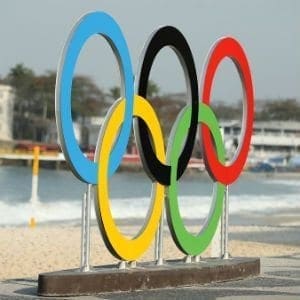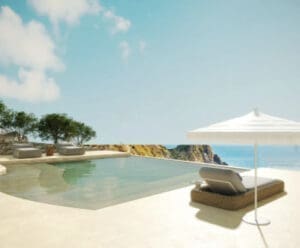Spain has always been a key destination for European vacations, and in recent years is seeing even higher demand, partly due to instability and insecurity in traditional competitors amongst other Mediterranean and North African destinations, a fact which is bad news for the entire tourism industry.
Meliá Hotels International generates a large part of its revenue in the third quarter (summer season in the Northern Hemisphere) due to the importance of the resort hotels in total operating profit (they represent 80%). Its Mediterranean resorts have had a very positive summer season in 2016, with increases in occupancy above the already good results of 2015. This year Meliá will have an average occupancy of over 80% and, above all, its will also maintain or increase the Average Room Rate (ARR) by up to double-digit growth, generating RevPAR (Revenue Per Available Room) growth of between 20 and 30%.

The company believes these increases must not be solely attributed to favourable travel trends – they are also the result of investments in the repositioning and re-branding of many hotels as part of a strategy for renewal, rebranding and repositioning of its portfolio, prioritizing the quality and profitability of hotels rather than maximizing their occupancy. “This strategy should also allow us to guarantee the sustainability of our business model, given that we all hope that the excess demand arising from problems in other destinations will get back to normal as soon as possible,” said Gabriel Escarrer, Vice Chairman and CEO of Meliá Hotels International. “When that time comes, we should be competitive in ourselves, well positioned in superior market segments, and not competing with emerging destinations on price but on quality and differentiation.”
In recent years, Meliá Hotels claims that its brand strategy, comprehensive renovation and asset re-branding, revenue management policies, proximity to customers and the information gathered on them through its digital development, have all allowed Meliá to improve the targeting and the effectiveness of its sales activities, increasing customer satisfaction and enhancing the customer experience while also optimizing revenues. There are excellent examples in repositioned hotels such as the ME Ibiza, where RevPAR grew by 60% in 2015 compared to 2014, or the Sol Katmandu (Mallorca) which grew by 58%, or Meliá Cala Galdana in Menorca, which grew by 44%.
80% of the 70% increase in RevPAR at Meliá Hotels International between 2011 and 2016 can be explained by price improvements. The growth of its direct sales channels, especially melia.com (+27%) and Meliá Pro (+75%) in 2016, have contributed significantly to this result.
Meliá has taken advantage of the crisis years to optimize its management and its hotel portfolio, increasing its resilience and competitiveness through a sales strategy based on its extensive experience in both leisure and business hotels, building on a high degree of internationalization, and involving strategic partners in major projects such as the renovation and repositioning of the Sol brand and other assets in the Mediterranean, with the support and cooperation of the public sector.
Gabriel Escarrer, concluded, “Companies and destinations should be competitive in themselves, and not rely on the problems of their competitors. We have to make the most of the favourable winds of the current situation to invest and further improve the quality of our portfolio by offering a more comprehensive and diversified value proposition than just the traditional “sun and beach” in order to earn the loyalty of our customers, hoping that the solution for destinations in north Africa will come soon and will find us fully prepared and ready.”















